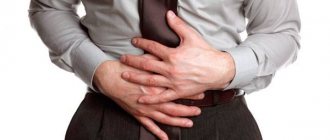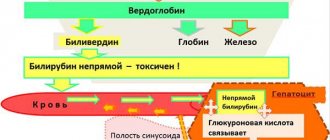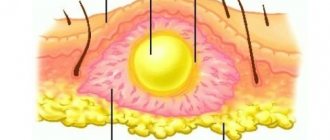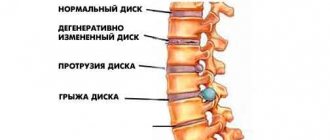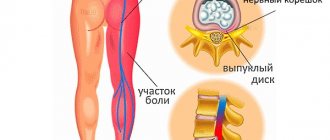If you experience frequent belching of air , think about its causes. This may be a natural reaction of the body to excess air or indicate the presence of some kind of disease of the gastrointestinal tract, liver, or gall bladder. An examination is required.
And belching itself is a phenomenon when air involuntarily escapes from the stomach under pressure, accompanied by a characteristic sound. If you are talking to someone and there is a loud burp, the person will think that you are poorly mannered. Many people feel the moment when the air comes and try to quickly step aside and cover their mouth with their hand.
Kinds
In medicine, there are 2 types of belching:
- Physiological.
- Pathological.
Any person can exhibit one or the other type. If you are healthy, but have eaten meals containing foods that contribute to excessive gas production, or have swallowed a lot of air while eating, then you will experience physiological belching. The same happens when you chew gum or smoke. With this natural release of air, you most likely will not experience any discomfort or unpleasant odor.
If you frequently and notice some kind of bad odor, this is a sign of pathology. Where exactly is the disorder in the body? The doctor will determine.
Causes
There is gas in the stomach, it stimulates the normal functioning of the organ and the secretion of gastric juice. When you swallow too much air during eating, emotional conversation, or other reasons, the stomach muscles contract and the excess air is expelled through the mouth.
Don't be alarmed, frequent belching is common to many people. Excess gas occurs due to the consumption of foods:
- Peas;
- Cabbage;
- Very fresh bread;
- Milk, others.
It can be triggered by eating a sandwich on the go or drinking soda. Some people are keen on losing weight and taking oxygen cocktails. Other foods can also cause excess gas.
Try to adhere to a certain diet. Let 4 or 5 hours pass between meals. Do not wash down your food with soda and do not drink it after finishing your meal. Products that contribute to gas formation may not be completely removed from the diet, but their consumption may be limited. Doctors after breakfast. It is not recommended to sit or lie quietly during lunch or dinner. Need 15 minutes. walk around, do household chores.
It is bad if during belching you feel liquid food in your mouth. It may taste sour, putrid or bitter. If this is not from overeating, then most likely you have problems with the stomach or duodenum.
If your stomach is too acidic, it will leave a sour taste in your mouth. This may indicate a stomach ulcer. A lot of juice is released and fermentation occurs, but there is not enough hydrochloric acid to digest food.
If the taste in the mouth is bitter, this means that bile has entered the stomach from the duodenum. If you feel rotten in your mouth, most likely you have eaten too much heavy food and, as it decomposes, it has become a little rotten.
If you smell something rotten, like spoiled eggs, this could be a sign of decomposition. This process produces ammonia and hydrogen sulfide. Gases come out through the mouth and a similar smell is felt. This may indicate an exacerbation of a peptic ulcer or gastritis (hyposecretory), which occurs in a chronic form. Later you will feel heaviness, that your stomach is full. You will be bothered by nausea and involuntary regurgitation, and you will feel aching pain in the pit of your stomach.
In some cases, belching with the smell of rotten eggs indicates stomach cancer. In any case, frequent regurgitation of food is a serious symptom that cannot be ignored. See your doctor immediately. After the examination, he will make an accurate diagnosis. Start treatment immediately. Dietary nutrition is usually prescribed. If it turns out that you have high acidity, your doctor will prescribe medications (antacids).
Causes in children
Like adults, children may have natural or pathological causes of regurgitation. If a child is nervous and prone to hysteria, his disease may often worsen.
Causes the disorder:
- When during lunch the child walks a lot or talks to someone;
- Overate;
- Belt or clothing too tight;
- There was a tense atmosphere when the child was eating;
- Ate junk food (fatty, fried spicy food, etc.) or snack on meat and fruit;
- He ate and immediately started running and playing with his friends.
- If one of the parents or relatives smokes, the child will become a passive smoker. The body will regularly receive a dose of nicotine, a poison for the child, and the sphincter will become weakened; under gastric pressure, gas will often pass into the mouth. All this can lead to intestinal obstruction.
Belching in a preschooler or schoolchild indicates that he has a disease of the gastrointestinal tract, bile ducts or liver. Food lingers in the stomach, rots and produces unpleasant regurgitation. This is also bad for the esophagus, the mucous membrane of which is irritated by acid.
Babies do not have a strong enough nervous system and the esophagus is designed in such a way that food often comes back during natural regurgitation. This is fine. The baby will grow up and when he burps, this will not happen.
In pregnant women
During pregnancy, hormonal levels change. More progesterone is released. This hormone indirectly affects digestion. The growing fetus puts pressure on the internal organs. Excess gas accumulates in the stomach and the pregnant woman feels belching. Don't worry, many pregnant women experience this. Everything is fine with you.
Poor nutrition
If you eat legumes (beans, peas, beans, lentils), mushrooms, brown rice, any cabbage or garlic and onions, chocolate, etc., then you may experience excessive gas. Do not drink carbonated mineral water while eating. You shouldn’t drink it with your meals either.
If you are prone to excessive gas, try to eat less meat and more vegetables and fruits. Refrain from eating fatty foods and dishes, do not cook fried foods, do not buy smoked, salted or spicy foods. During an exacerbation, do not eat dairy. Some people have problems when eating nuts, eggs or citrus fruits.
Stress
If you were quarreling with someone, you could have a loud emotional conversation and swallow a lot of air. It has been noticed that when there is a strong shock, a person, like a fish, gasps for air and belches with odorless air.
There is also a phenomenon called aerophagia, when a breastfeeding baby or an adult under stress (eats quickly) swallows too much air. This is what happens when you burp. If a baby has such symptoms, the pediatrician will explain to the young mother how to feed the baby correctly and everything will go away.
Etiology of the symptom
When belching appears, the reasons for its occurrence are different. Like the causes, the treatment will also vary. As practice shows, most cases of belching occur for physiological reasons in people with a completely healthy gastrointestinal tract. Usually this is an empty belch of air, sometimes accompanied by the smell of food eaten the day before. There may be several reasons for frequent belching:
- Heated conversations that accompany eating.
- Hasty swallowing of unchewed food.
- Persistent emotional tension during meals.
- Aerophagia. Frequent belching of air, which occurs if a person constantly swallows too much air.
- Binge eating.
- Reading while eating, which distracts attention from chewing food.
Very often, belching after eating is directly related to the food itself. Food varies, but some foods have such an unpleasant property as an increased ability to stimulate gas formation. The air in the stomach will tend to come out. Similar products include:
- Carbonated drinks.
- Oxygen cocktails.
- Milk and its derivatives.
- Some types of plants such as onions.
- Many types of legumes and cabbage, which, however, much more often contribute to the development of flatulence.
Despite the apparent harmlessness of the possible causes, severe belching, and even more so frequent, may well be a manifestation of a fairly serious disease. Constant belching of air is one of the manifestations of stomach cancer.
The basis for the formation of pathological belching is various diseases of the digestive system.
- pancreatitis;
- gastritis;
- gallbladder diseases;
- gastroduodenitis;
- hiatal hernia;
- stomach ulcer.
Belching with gastritis, pancreatitis or other diseases listed above is one of the main symptoms, and if it occurs, you should consult a doctor as soon as possible. If you are experiencing belching with a feeling of fullness in your stomach, you should immediately get checked for cancer.
When there is belching of air after eating, the reasons can also be different. Belching a gas-air mixture after eating, unfortunately, is not always caused by physiological factors. Sometimes this form of belching directly indicates the presence of pathological abnormalities in the digestive system. In addition to the well-known symptom of belching with gastritis, other reasons for this phenomenon may be:
- chronic or acute pancreatitis;
- inflammation of the duodenal bulb;
- functional disorders of the tone and motility of the gallbladder;
- the pancreas has pathologies;
- inflammation of the mucous membrane of the esophagus.
It should be noted that in an adult, not all causes of pathologies are located in the digestive system. Frequently recurring belching is a good reason to consult a doctor.
Belching in healthy people
An empty stomach contains air before eating. How many? It depends on its volume. On average from 0.5 to 1 liter.
How can excess air get into the stomach in a healthy person? When he snacks while walking or talks to someone while eating. If he is nervous, he often begins to swallow saliva or smokes a lot, drinks soda or drinks with gas, chews gum. If someone overeats, they are likely to experience heaviness in the stomach and belching.
Belching often occurs in healthy overweight people. Those who drank strong tea or coffee, ate fried or fatty foods, a lot of onions and garlic. If you are completely healthy, but after a heavy lunch you are in a hurry to run errands somewhere, speeding up your pace, you may experience belching. If you bend over sharply or run. When a belt or corset for ladies is too tight.
For example, you have a cold and use an inhaler. Since you have to breathe with your mouth open, it goes without saying that excess air will enter the stomach. If you are pregnant, the fetus is growing and is already pushing many organs and the diaphragm, and you often burp.
Belching and heartburn after eating
Sometimes belching after eating is accompanied by another unpleasant symptom - heartburn. The sensation is described by people as a burning sensation and an acidic taste in the mouth.
More often than others, adults and children suffering from gastritis or stomach ulcers suffer from such manifestations. As a rule, heartburn is the main symptom of established reflux. Food mixed with gastric juice tends to flow back into the esophagus. This is why a person feels bitterness and sour taste in the mouth. There may be a burning sensation associated with irritation of the esophageal mucosa.
When combining heartburn, belching and the smell of rotten breath after each feast, it is necessary to exclude the presence of a hiatal hernia. This kind of “bag,” on the one hand, prevents the free passage of food through the intestines, and on the other hand, can lead to gas formation and heartburn.
In an adult healthy person, belching with acid rarely appears, for example, after an excess of dishes on the table with seasonings, preservatives, or during overeating. Or the stress experienced can trigger the release of gastric juice. A gastroenterologist and an endoscopy will help put everything in its place.
What diseases cause belching?
In healthy people, belching rarely occurs. If you notice it more and more often, this indicates that you have problems with the gastrointestinal tract or disturbances in the functioning of the liver or gall bladder. The sphincter is located between the stomach and esophagus. If it does not close tightly, air rises under pressure through the esophagus to the mouth and a belch results.
This condition, when the sphincter does not close tightly, may be after surgery on the stomach or you have a hernia (diaphragmatic). If you have problems in the duodenum, then there is a very high probability of similar symptoms.
When you smell rotten eggs, this indicates gastritis (atrophic). Similar problems arise due to disturbances in the functioning of the cardiovascular system. Therefore, experts advise immediately to be examined, establish a diagnosis, and prescribe treatment.
Diseases that cause belching:
- Pancreatitis;
- Gastritis;
- Gastroparesis;
- Hernia at the food passage of the diaphragm;
- Hepatitis;
- Stomach or duodenal ulcer;
- Gastrointestinal disorder;
- Worms;
- Slouch;
- Cholecystitis;
- Dysbacteriosis.
These diseases also cause other symptoms:
- Nausea;
- Bloating;
- Digestion is upset;
- Pain is felt.
If you feel so bad, don’t sit idly by, go see a doctor right away. Very bad? Call an ambulance. It is urgent to establish a diagnosis and begin treatment. Try to stick to proper nutrition. Eliminate from your diet for a while: fatty, fried, spicy, salty, carbonated drinks, do not chew gum. If you follow the recommendations of specialists, you will soon feel much better.
What diagnostic measures are carried out?
Diagnostic measures for complaints of persistent belching begin with collecting anamnesis and a standard interview with the patient.
During the interview, the doctor finds out the main points that help determine the future strategy:
- frequency of belching;
- her dependence on meals;
- the nature of the belching (duration, smell, presence of foreign tastes);
- the presence of accompanying symptoms (pain, nausea, vomiting, heartburn).
Next, laboratory diagnostics are prescribed - urine analysis, biochemical blood test, coprogram.
Then, depending on the results, instrumental diagnostic methods are selected:
- Ultrasound of the digestive organs;
- esophagogastroduodenoscopy;
- fibrogastroduodenoscopy;
- colonoscopy;
- pH-metry of gastric juice.
Only a complete medical diagnosis allows you to understand why belching occurs and prescribe adequate treatment.
Air belching in children without odor
If a child excitedly says something while eating, then there is a high probability that excess air will get into the mouth, esophagus, and then the stomach and belching will occur. Not only do they have a conversation, children can eat a sandwich on the go and have fun running around the room.
If you notice that your baby is belching odorless air, do not rush to get scared. Have you given him an inhalation recently? If your baby has a stuffy nose, he will breathe through his mouth and swallow excess air. It happens that a child recently watched a cartoon, became emotionally overexcited, shared his impressions, and then burped with clean air. This is a natural physiological reaction. Excess air comes out of the stomach.
ENT problems include:
- Adenoids;
- Constant runny nose. Possibly allergic;
- Inflammation in the sinuses;
- Chronic tonsillitis.
If your baby has one of the problems, he may swallow excess air while eating. It happens that a baby, in anticipation of lunch or when remembering something tasty, produces a lot of saliva. He swallows it often. In this case, excess air enters the esophagus and then the stomach.
It’s not so simple: you need to show your baby to the doctor so that he can determine exactly why he often produces a lot of saliva? After all, this may be a sign of dental disease, ENT problems or disturbances in the gastrointestinal tract. An examination and establishment of an accurate diagnosis is required.
Prevention of pathology
The occurrence of belching can be prevented if you follow the basic rules of eating:
- eat in small portions, do not overeat;
- do not abuse carbonated drinks and alcohol;
- maintain a balanced diet;
- avoid snacking on the go;
- chew food thoroughly, eat slowly;
- talk less while eating;
- limit foods that cause increased gas formation in the stomach;
- monitor your weight.
After eating, you shouldn’t immediately start moving actively, but you shouldn’t lie down either. You need to sit for a while to allow the air to calmly leave the stomach.
The rules of a healthy diet are not only a preventive measure against belching. They help avoid the development of severe pathologies of the digestive system.
A rather unpleasant phenomenon, such as belching air, often occurs after eating; if this bothers you, find out the reasons and arrange treatment after reading this article. The appearance of belching is caused by the entry of air into the esophagus or stomach during eating (drinking), or the release of gases, often with an unpleasant odor, and sometimes together with food debris. When we burp, the stomach tries to equalize the pressure inside itself by opening a special muscle valve (lower esophageal sphincter).
Treatment
If you experience belching, consult a doctor immediately. He will examine you and make a diagnosis and prescribe treatment. Most likely, you will have to eat in moderation, stick to a diet, and take medications.
The main thing is to establish in which organ the pathological disorders occurred, prescribe medications and treat. To feel the effect quickly, follow a diet. Eat small amounts and at short intervals. Avoid carbonated drinks completely from your diet.
In a situation where you secrete too much gastric juice, your doctor will prescribe antacids (Gastal or Almagel, other medications). They soften the gastric mucosa. If there are problems with the functioning of the gallbladder or liver, then your doctor will prescribe you prokinetics.
The therapist will definitely make the correct diagnosis and, in case of increased acidity, will prescribe you a drug that reduces the high acidity of the juice secreted in the stomach. If you experience stomach discomfort or other unpleasant symptoms while taking medications, contact your doctor immediately. Perhaps, in order to avoid the manifestations of dysbacteriosis, you will be prescribed drugs that normalize the gastric microflora. The main thing is not to harm the body even more.
During the treatment course, if you smoke, try to reduce your cigarette consumption to a minimum, or better yet, abstain altogether. Chewing gum is also not allowed. When chewing, saliva is inevitably released. When you swallow it, excess air will enter the stomach with it and you will belch, and during treatment it needs rest.
In addition to traditional medicinal treatment, nature, rich in gifts, will share its miraculous gifts. Introduce herbal teas from:
- Melissa;
- Blackberries;
- Mint.
Do you have high acidity? A mixture taken in equal quantities will help improve the condition: linden flowers, fennel, mint with flax seeds. Make a decoction and drink ½ glass 2 times a day. Treat for a long time, at least one year, then there will be a sustainable healing effect.
A tincture made from honey and aloe has proven itself to be an excellent remedy. Cut 1 or 2 aloe leaves at the root. Rinse under running water and refrigerate for 7 days. Now grind into a meat grinder and mix with honey 1:1.
Store this mixture for 2 weeks in a dark place. Take the medicine according to the following regimen:
- 1st week. Before meals, drink 1 tsp 3 times a day.
- 2nd week. Similarly, drink 2 tsp 3 times a day before meals. facilities.
- 3rd week. It is required to consume 3 tsp 3 times a day. means before meals. If it weakens greatly, then take a dose of 1 tsp. Before preparing your own mixture, make sure that you are not allergic to one of the components.
Belching and nausea after eating
If, after eating, belching is combined with nausea, this is a signal of uncorrected nutrition. Not everyone and not always really monitor what goes into their stomach. And the quality of products today is quite low.
In an adult, the unpleasant condition may be limited to only belching, while a small child may even be admitted to the hospital with acute poisoning. While eating or immediately after eating, the baby feels a sharp deterioration in health. Against the background of intense release of gases, nausea and vomiting, even with foam, may appear. Emergency medical attention required. Doctors will already understand the reasons.
More often they provoke belching of air after eating, nausea causes:
- the presence of excessively heavy and fatty foods in the diet;
- active actions begin immediately after leaving the table - the pressure on the walls of the stomach increases sharply;
- expired products were consumed;
- refusal of the doctor-recommended diet for the period of exacerbation of gastrointestinal disease;
- course of toxicosis in the expectant mother;
- drinking coffee or tea on an empty stomach;
- individual intolerance to any food component.
If belching food after eating and nausea become frequent companions of a person, you should not delay visiting a gastroenterologist. The cause of such a disorder can be quite serious, even a malignant neoplasm in the stomach.
